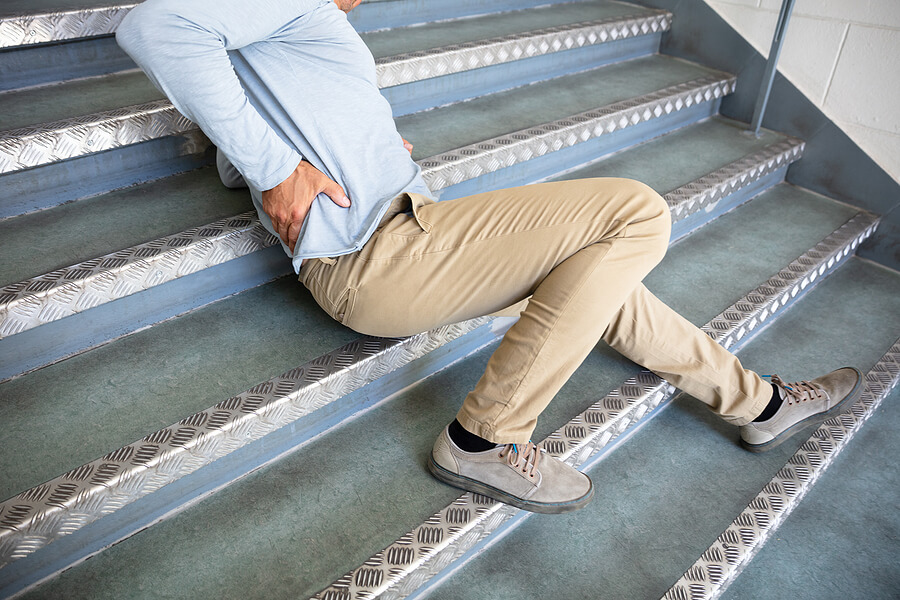- Are Cochlear Implants Worth It? - June 6, 2025
- Tips for Using Hearing Aids in Different Environments - May 27, 2025
- Rechargeable Hearing Aids vs. Battery-operated Hearing Aids - May 16, 2025
Hearing aids are often celebrated for their ability to improve communication and quality of life for those with hearing loss. However, what’s less commonly discussed is their role in preventing accidents and falls. Hearing aids can be your heroes in keeping you safe and balanced.
The Link Between Hearing Loss and Accidents
Research has shown a clear connection between untreated hearing loss and an increased risk of accidents and falls. When you can’t hear well, your awareness of your surroundings diminishes, and you may not notice important auditory cues, like sirens, car horns, or someone warning you of danger.
The consequences of this disconnect from your environment can be severe. Accidents like tripping, bumping into objects, or even crossing a road without hearing approaching vehicles can become more likely. This heightened risk doesn’t just affect the individual with hearing loss; it can also be a concern for their family and caregivers who worry about their loved one’s safety.
How Hearing Aids Can Prevent Accidents
Hearing aids are small, powerful devices that can make a significant difference in reducing the risk of accidents and falls:
Improved Environmental Awareness: Hearing aids are designed to amplify sounds and help you hear better. This includes environmental sounds such as footsteps, background chatter, and approaching vehicles. With hearing aids, you regain a vital connection to your surroundings, which can help you avoid potential accidents.
Enhanced Communication: Hearing aids make it easier to communicate with others, especially in noisy or crowded places. Better communication reduces the risk of misunderstandings and confusion, ultimately promoting a safer environment.
Alarms and Alerts: Many hearing aids come with advanced features that can be connected to alarms and alerts, including smoke detectors, doorbells, and phone notifications. These features ensure that you won’t miss crucial safety signals.
Balance and Coordination: Hearing loss can affect your balance and coordination, increasing the likelihood of stumbling or falling. With hearing aids, you can regain a more accurate spatial awareness and improve your overall stability.
Confidence Boost: Hearing aids can help restore your self-confidence, encouraging you to stay active and engage in social activities. The more active you are, the more you can improve your balance and reduce the risk of accidents.
Early Warning System: When you can hear warning sounds like sirens, car horns, or people calling out to you, you can respond promptly to potential dangers.
Cognitive Benefits: Hearing aids can also have cognitive benefits. Improved hearing and better engagement with your environment can keep your mind sharp and attentive, reducing the risk of accidents caused by confusion or disorientation.
How Hearing Aids Can Prevent Falls
Falls are a significant concern for individuals with hearing loss, particularly among the elderly population. Falls can lead to serious injuries, including fractures and head trauma. Additionally, the fear of falling can impact an individual’s overall quality of life, leading to reduced physical activity, social isolation, and increased stress. Wearing hearing aids can help prevent falls by improving spatial location and helping you hear all the sounds in your environment.
Tips for Safe Hearing Aid Use
To maximize the safety benefits of hearing aids, follow these tips:
- Regular Maintenance: Ensure your hearing aids are in good working condition. Regular maintenance and cleaning are essential to keep them functioning optimally.
- Proper Fit: Make sure your hearing aids fit well and comfortably. An ill-fitting hearing aid may not provide the full range of safety benefits.
- Stay Active: Engage in regular physical activity to improve your balance, strength, and overall fitness. Physical activity can reduce the risk of falls and accidents.
- Hearing Checkups: Schedule regular checkups with your hearing health specialist to ensure your hearing aids are adjusted correctly and continue to meet your needs.
- Consistent Use: Wear your hearing aids consistently. The more you use them, the better they can assist you in staying safe.
- Educate Loved Ones: Inform your family and caregivers about the importance of your hearing aids in maintaining your safety. They can support and encourage you to use your hearing aids effectively.
Embrace a Safer, More Active Lifestyle
Hearing aids are not just about hearing better; they are about living better. By wearing hearing aids, you can significantly reduce the risk of accidents and falls. Visit us today to find your perfect hearing aids.

